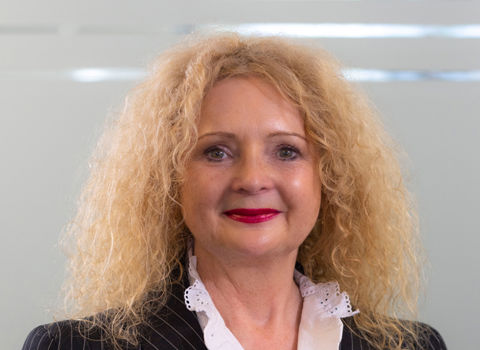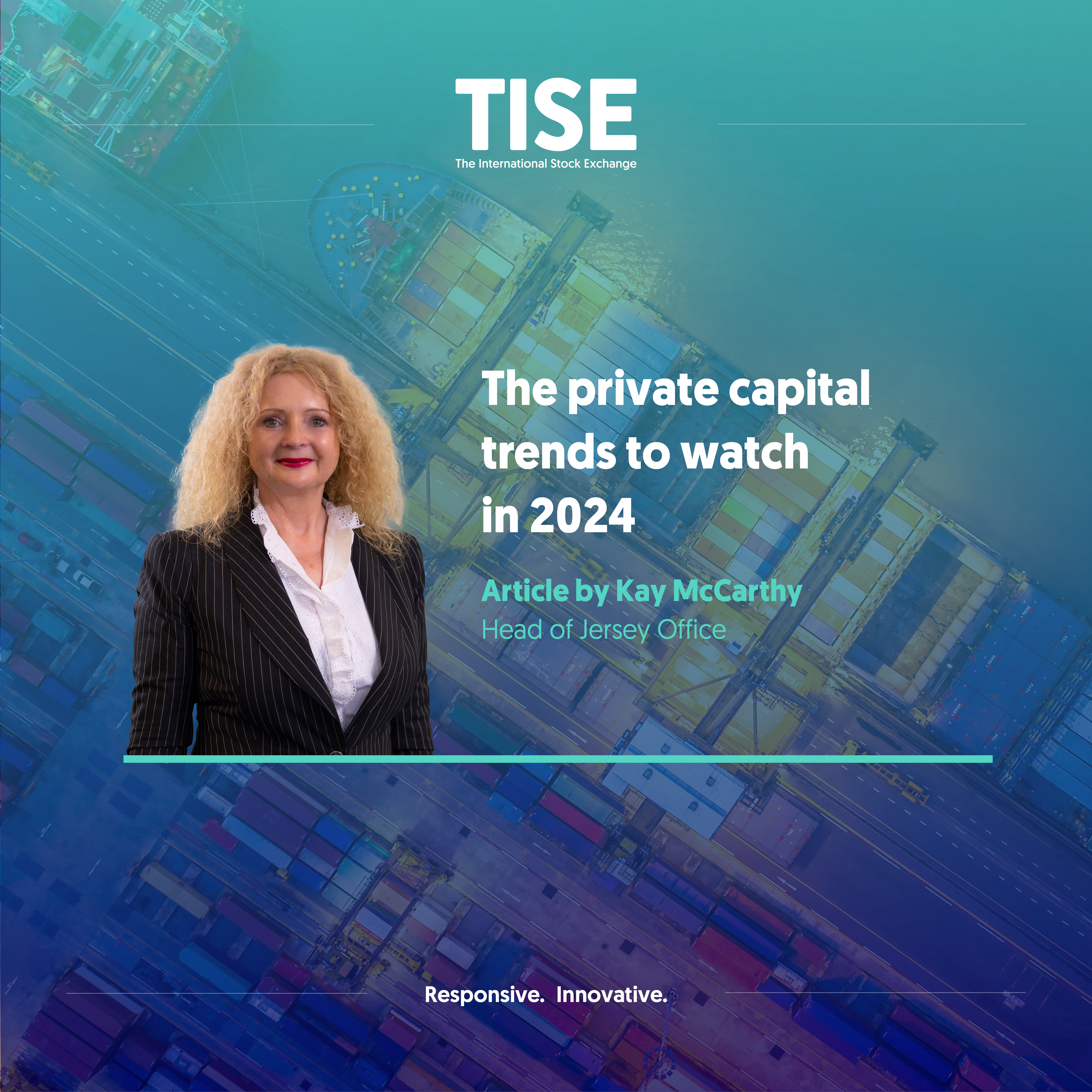With evidence of green shoots emerging, Kay McCarthy, Head of Jersey Office at The International Stock Exchange (TISE), assesses the key trends within private capital and how these are influencing activity on the Exchange.
Private capital has become a major driver of mergers and acquisitions (M&A) volumes in recent years and now accounts for a significant proportion of all M&A activity globally. However, despite this impressive growth, private equity deal activity has not been immune to the volatility across the broader markets in recent times.
Higher interest rates leading to higher debt financing costs, coupled with recession fears and geopolitical uncertainty, caused a notable decline in deal activity in 2023. This, combined with the slowdown in the IPO markets, led to a challenging fundraising environment.
However, as we approach the second quarter of 2024, it is becoming clear that green shoots are emerging as the economic outlook is gradually shifting. The expectation of lower inflation and declining interest rates, together with stock market gains, is positive for the deployment of capital.
With improved market conditions and record cash reserves, it is expected that investment focus will be on high growth sectors including Artificial Intelligence (AI), technology, cybersecurity, sustainability and infrastructure, particularly related green energy projects.
Investment trends
AI is expected to be a major theme in markets for years to come as managers continue to integrate AI technologies into their strategies to increase valuations and improve revenue. Expect to see further exploration of its potential in 2024.
Financial technology and payment companies are expected to be another focus. They provide fast delivery and distribution of financial services and can offer alternative financing to conventional banks. Large recent deals in this sector have included Blackstone’s acquisition of one of the UK’s largest software companies, Civica, for US$2.5 billion.
Demand for cybersecurity opportunities will continue to accelerate as cybersecurity threats increase, coupled with the rising cost of data breaches. Companies with software to address these security challenges will remain attractive for investment.
"With improved market conditions and record cash reserves, it is expected that investment focus will be on high growth sectors..."
Sustainable investing continues across sectors. Financial institutions now have sustainable investing policies and investment firms are implementing sustainable investing programmes to align with their investors. Customers’ environmental concerns are also increasing and as such, they are considering the ecological and social impacts of the products they buy and spending more on brands that are environmentally and socially responsible.
Similarly, investment in global renewables continues to rise as governments take action to support green energy solutions. Investment in infrastructure, particularly green energy infrastructure, is expanding rapidly with cross-border projects being supported by both public and private investment. Several of the world’s largest asset managers, including Brookfield Asset Management and Blackrock, have been investing heavily into this strategy. At TISE, we see multiple green energy infrastructure related transactions each year.
Sovereign Wealth Funds
Private equity fundraising and investment allocation is often undertaken in conjunction with partners such as large global state-owned pension funds and sovereign wealth funds (SWFs). According to Global SWF, who track the world’s sovereign investment funds, co-investments are becoming increasingly popular among SWFs and other state-owned investors.
Whilst overall M&A activity by SWFs, including private equity co-investments, fell significantly last year, activity is expected to increase in 2024, in line with the expected recovery in markets.
"...co-investments are becoming increasingly popular among SWFs and other state-owned investors."
SWFs are some of the world’s largest asset owners, globally managing over US$11trillion, with diversified portfolios across many different asset classes and sectors. They invest in both real and financial assets including equities, fixed income, real estate, infrastructure and private equity.
Co-investment and collaboration is becoming more popular. In the past few years, SWFs have been actively pursuing high profile investments in sectors such as infrastructure and renewable energy, taking significant stakes in key assets in developed economies.
There is also evidence that a number of governments are actively canvassing SWFs to invest in domestic projects and in assets. The UK is an important centre for international SFWs and for foreign investment generally. It is likely that this trend will continue.
A closer look
SWFs invest in many other areas globally too, for example, Saudi Arabia’s Public Investment Fund (PIF), one of the largest in the world, made headlines in the sporting world last year with its high-profile investments in golf and football. According to Global SWF, Saudi Arabia’s PIF accounted for about a quarter of the almost US$124 billion spent by SWFs worldwide last year. Such global, cross-border, M&A will likely be a growing trend.
The Abu Dhabi Investment Authority, another global investor, participated in three of the six largest global M&A investments last year which included co-investment. The take private acquisitions of Cvent Holding Corp in partnership with Blackstone and the acquisition of Univar Solutions by Apollo Global Management, were valued at US$8.1 billion and US$4.6 billion respectively.
"..at TISE we continue to see high profile financing deals involving the world’s largest sovereign wealth and pension funds list securities on our market."
Significantly, in November, the Norwegian Government Pension Fund, the largest single SWF in the world, requested permission from the country’s Ministry of Finance to open the fund to private equity investments and in doing so, it described co-investment as part of the strategy to provide lower cost access to private equity.
Increased confidence
Whilst co-investment is increasing, it has been around for some time, and at TISE we continue to see high profile financing deals involving the world’s largest sovereign wealth and pension funds list securities on our market.
A high proportion of the Exchange’s business flows are correlated to market sentiment, and with that we have seen a strong first quarter for listing activity. There has been a notable pick up in private equity backed transactions, high yield bonds, applications from Real Estate Investment Trusts (REITs), as well as several other real estate related deals.
With increased confidence and renewed appetite for progressing investments, there is a real feeling that markets have turned a corner in 2024.
This article was originally published in the Jersey Evening Post, March 2024

Kay McCarthy
Head of Jersey Office

